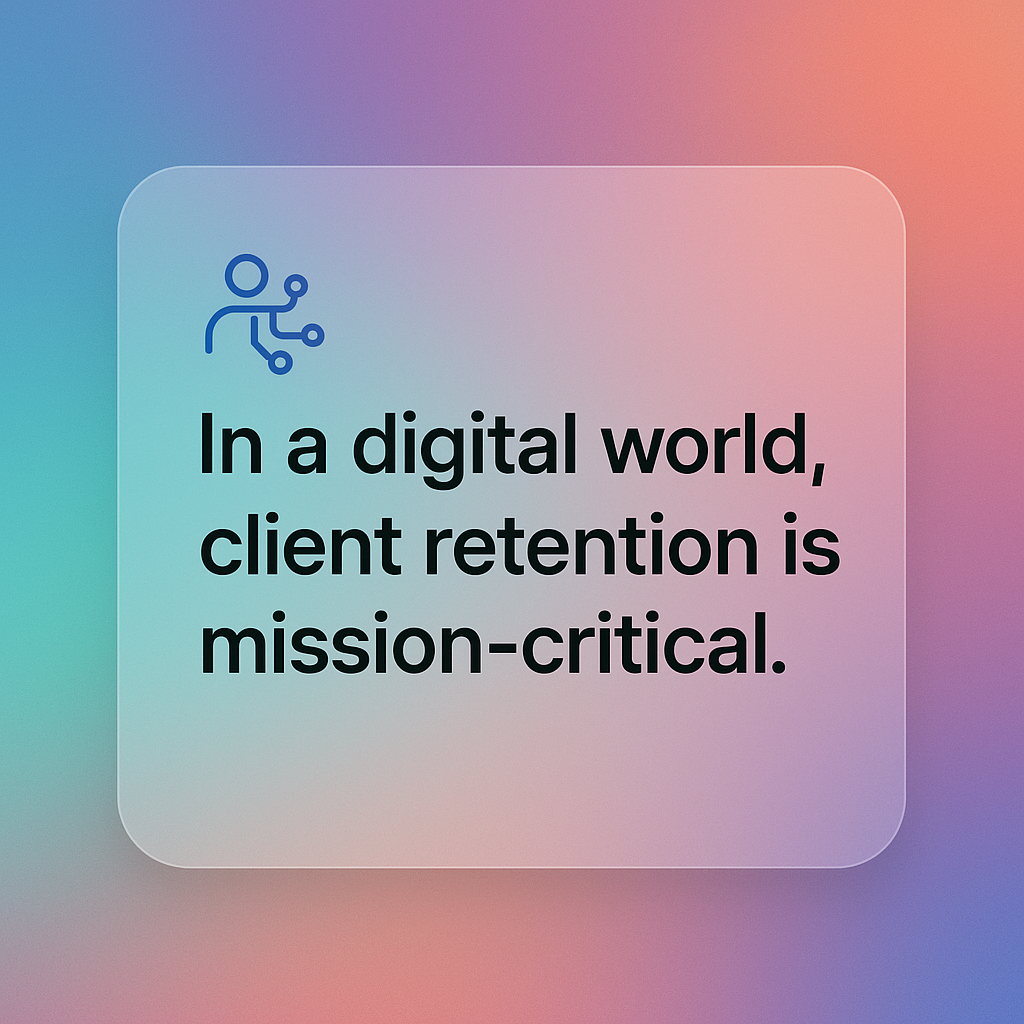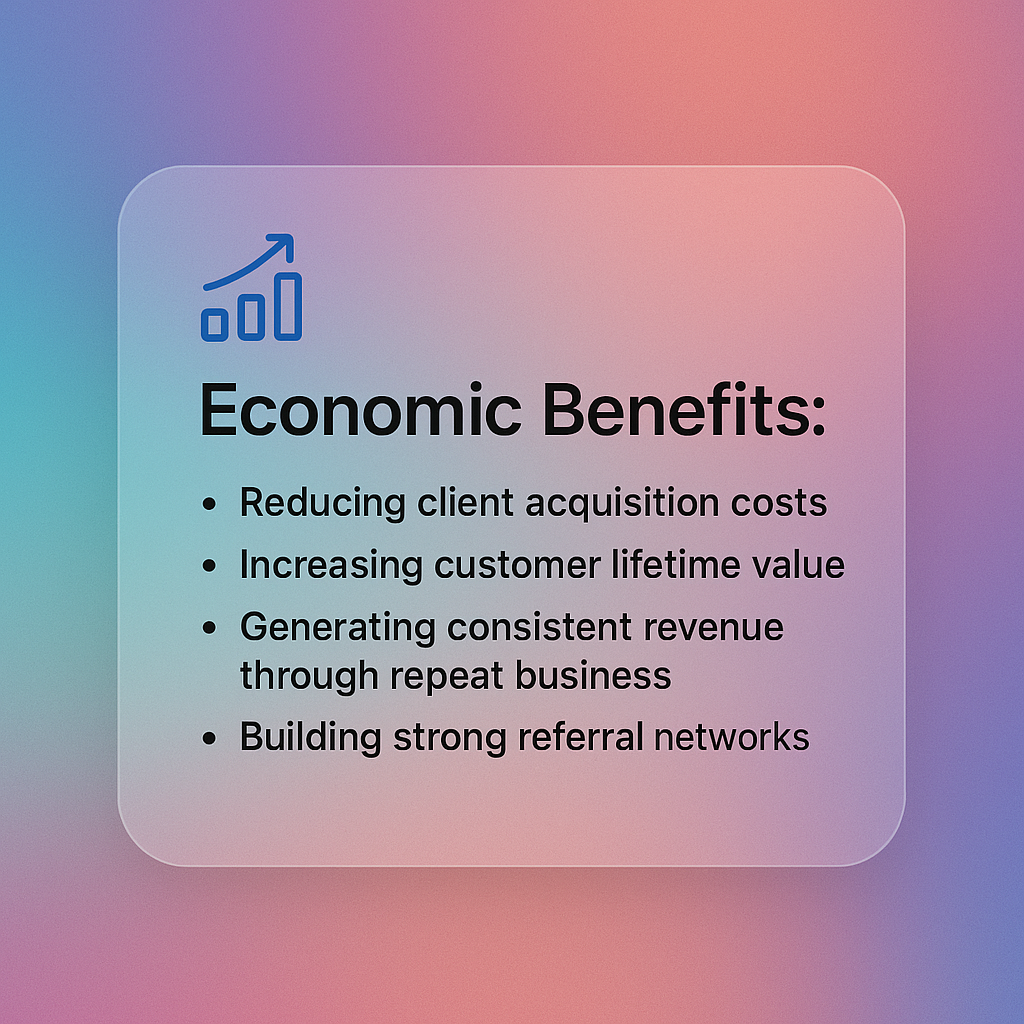
Client management is often seen as the art of keeping customers happy and loyal, especially in crowded service industries. Surprising, right? Businesses that excel at proactive client communication and personalized service report up to a 60 percent increase in customer lifetime value. Most people think client management is all about emails and handshakes but it is actually the difference between just making a sale and creating a lasting partnership that fuels real business growth.
Table of Contents: Client Management
- Defining Client Management: Core Principles And Concepts
- The Importance Of Client Management In Service-Based Industries
- How Client Management Enhances Client Relationships
- Key Components Of Effective Client Management Systems
Quick Summary: Client Management
| Takeaway | Explanation |
|---|---|
| Proactive communication builds partnerships. | Establishing clear communication channels fosters trust and strengthens long-term client relationships. |
| Personalization enhances client engagement. | Tailoring interactions to individual client needs creates a deeper connection and increases satisfaction. |
| Continuous value delivery is essential. | Consistently demonstrating tangible benefits builds loyalty and encourages repeat business from clients. |
| Client management supports strategic growth. | Effectively managing client relationships contributes to business sustainability and differentiation in competitive markets. |
| Data-driven insights improve interactions. | Utilizing client management systems allows professionals to personalize communication and anticipate client needs effectively. |
Defining Client Management: Core Principles and Concepts
Client management represents a strategic approach to building, maintaining, and nurturing professional relationships with customers or clients across various service industries. At its core, client management transcends simple transactional interactions, focusing instead on creating meaningful, long term connections that drive mutual value and sustainable business growth.
The Fundamental Purpose of Client Management
Client management serves as a comprehensive framework for understanding, anticipating, and fulfilling client needs while maintaining high levels of satisfaction and engagement. According to Project Management Institute, successful client management requires developing critical behavioral competencies that enable professionals to deliver exceptional service.
Key principles of effective client management include:
- Proactive Communication: Establishing clear, consistent, and transparent communication channels
- Personalized Approach: Tailoring interactions and solutions to individual client requirements
- Continuous Value Delivery: Consistently demonstrating tangible benefits and outcomes
Understanding Client Relationship Dynamics
Successful client management recognizes that each interaction represents an opportunity to build trust, credibility, and long term partnership. This approach requires professionals to develop nuanced skills that go beyond technical expertise, emphasizing emotional intelligence, active listening, and adaptive problem solving.
Professionals must remain committed to understanding each client’s unique context, challenges, and aspirations. By cultivating a deep understanding of client perspectives, service providers can design more targeted, impactful solutions that genuinely address specific needs.
Ultimately, client management is about creating a holistic experience that makes clients feel valued, understood, and consistently supported throughout their engagement with your business.
The following table summarizes the key principles of effective client management, helping clarify the main concepts and their practical significance.
| Principle | Description |
|---|---|
| Proactive Communication | Establishing clear, consistent, and transparent communication channels |
| Personalized Approach | Tailoring interactions and solutions to individual client requirements |
| Continuous Value Delivery | Consistently demonstrating tangible benefits and outcomes |
| Relationship Building | Focusing on long-term connections that build trust and loyalty |
| Emotional Intelligence | Applying empathy, active listening, and adaptive problem solving |
| Data-Driven Insights | Leveraging client data to personalize communication and anticipate needs |
The Importance of Client Management in Service-Based Industries
In service-based industries, client management serves as a critical strategic function that directly impacts business sustainability, growth, and competitive positioning. While technical skills remain essential, the ability to effectively manage client relationships has become increasingly paramount in determining long term business success.
Economic and Strategic Significance: Client Management
Client management goes beyond mere customer service, representing a sophisticated approach to building and maintaining professional relationships. According to International Federation of Accountants, effective client management can significantly enhance business profitability through strategic relationship development.
Key economic benefits include:

- Reducing client acquisition costs
- Increasing customer lifetime value
- Generating consistent revenue through repeat business
- Building strong referral networks
Strategic Relationship Development: Client Management
Service professionals must recognize that each client interaction represents an opportunity to demonstrate value, build trust, and create differentiation in competitive markets. By understanding unique client needs and consistently delivering exceptional experiences, businesses can transform transactional relationships into strategic partnerships.
Professionals can enhance client management effectiveness by developing client retention strategies that prioritize personalized communication, proactive problem solving, and continuous value demonstration. This approach not only satisfies immediate client requirements but also establishes a foundation for long term collaboration.
Ultimately, client management in service industries is about creating meaningful connections that transcend traditional business transactions. By investing in relationship building, understanding client perspectives, and consistently delivering exceptional value, service providers can distinguish themselves in increasingly competitive markets.
How Client Management Enhances Client Relationships
Client management represents a sophisticated approach to transforming basic customer interactions into deep, meaningful professional relationships. By prioritizing intentional communication, personalized experiences, and consistent value delivery, businesses can elevate standard transactional exchanges into strategic partnerships that drive mutual growth and satisfaction.
Building Trust Through Strategic Communication
Effective client management hinges on developing robust communication frameworks that prioritize transparency, empathy, and proactive engagement. According to research from active listening studies, professionals who demonstrate genuine interest and attentiveness can significantly enhance relationship quality.
Key elements of trust building include:
- Demonstrating consistent reliability
- Maintaining transparent communication channels
- Responding promptly to client inquiries
- Providing clear expectations and follow through
Personalization as a Relationship Catalyst
Modern client management moves beyond generic interactions, emphasizing tailored experiences that make clients feel uniquely understood. Professionals can leverage client retention tools to track individual client preferences, anticipate needs, and design customized engagement strategies.
By understanding each client’s specific context, challenges, and objectives, service providers can craft solutions that feel personally crafted rather than standardized. This approach transforms client relationships from transactional exchanges into collaborative partnerships where clients perceive genuine commitment to their success.
Ultimately, exceptional client management transcends traditional service delivery. It represents a holistic approach to relationship building that recognizes each interaction as an opportunity to demonstrate value, build trust, and create lasting professional connections that benefit both parties.
Key Components of Effective Client Management Systems
Client management systems represent sophisticated technological frameworks designed to streamline, optimize, and enhance professional interactions with clients. These systems go beyond simple record keeping, serving as strategic tools that enable businesses to build stronger, more meaningful client relationships through intelligent data management and personalized engagement strategies.
Comprehensive Client Data Infrastructure
A robust client management system requires a meticulously structured data infrastructure that captures and organizes critical client information. According to National Center for Biotechnology Information, effective systems must incorporate comprehensive assessment mechanisms that enable professionals to identify, track, and respond to client needs systematically.
Key data tracking components include:
- Detailed client contact information
- Historical interaction records
- Personalized service preferences
- Communication interaction timelines
- Specific client goals and objectives
Intelligent Engagement and Feedback Mechanisms
Modern client management systems leverage advanced technologies to create dynamic, responsive engagement platforms. Professionals can utilize client retention tools to develop sophisticated tracking and communication strategies that anticipate client needs and proactively address potential challenges.
These systems enable service providers to transform raw data into actionable insights, allowing for personalized communication strategies that make clients feel genuinely understood and valued. By integrating intelligent feedback loops, businesses can continuously refine their service approach, ensuring ongoing alignment with evolving client expectations.

Ultimately, an effective client management system functions as more than a technological solution.
This table presents the main components of an effective client management system, organizing the information to show both foundational and advanced features as highlighted in the article.
| Component | Purpose/Benefit |
|---|---|
| Client Contact Information | Enables accurate communication and record-keeping |
| Historical Interaction Records | Helps track previous engagements and preferences |
| Service Preferences | Supports personalized experience and tailored solutions |
| Communication Timelines | Ensures timely follow-up and engagement |
| Client Goals and Objectives | Facilitates solution alignment and value demonstration |
| Engagement & Feedback Mechanisms | Allows for dynamic, responsive client interactions and continuous improvement |
Ready to Transform How You Manage Client Relationships?
If you are tired of juggling spreadsheets, missing out on proactive communication, or watching opportunities slip away because your systems are scattered, you are not alone. The article highlighted how client management means more than just organizing contacts. It is about building trust, personalizing interactions, and delivering continuous value. But for many solopreneurs and freelancers, turning these principles into action can feel overwhelming without the right tools.

Imagine a single platform that helps you put these client management best practices into everyday use. With Fluum, you get an AI-powered co-founder that lets you centralize client data, automate bookings and payments, and track every interaction seamlessly. No coding required. No technical skills needed. Explore our all-in-one system designed for solo providers who want to deepen relationships, grow revenue, and stand out in competitive service industries. Take control of your business now. Discover transparent pricing and features and join a community focused on success. Experience a new level of client management effectiveness with Fluum today.
Frequently Asked Questions
What is client management?
Client management is a strategic approach to building and nurturing professional relationships with clients, focusing on creating long-term connections that enhance mutual value and business growth.
Why is client management important in service-based industries?
Client management is crucial in service-based industries as it directly impacts business sustainability, growth, and competitive positioning by enhancing client relationships and driving repeat business.
What are the key principles of effective client management?
The key principles include proactive communication, a personalized approach to client interactions, and continuous value delivery to meet client needs and expectations.
How can technology improve client management?
Technology improves client management through sophisticated client management systems that streamline data organization, enhance engagement strategies, and enable personalized communication, ultimately strengthening client relationships.

